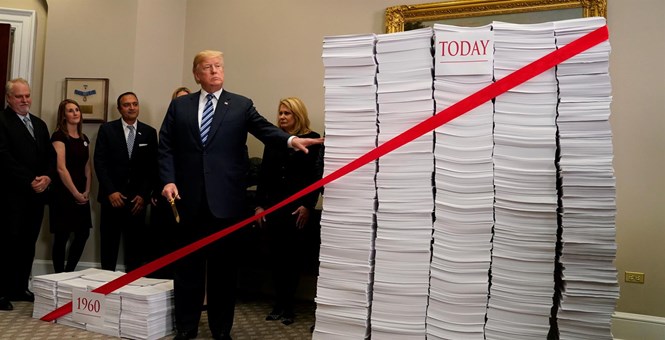Here is a discussion in the Wall Street Journal on the Food and Drug Administration’s use of “guidance letters” rather than official, properly vetted rules. Such behavior is consistent with President Barack Obama’s taunt of implementing his agenda without Congress with just “a pen … and a phone,” which included federal agencies using “guidelines” and “guidance letters” and other diktats.
As discussed here in November:
Besides not needing Congress, the guidelines didn’t even have to follow established rule-making procedure. They were essentially pronouncements for how the agency secretaries would interpret compliance or noncompliance with established rules. Those subject to the rules knew what that meant, and it wasn’t “voluntary.”
As the WSJ put it, “The Obama Administration made an art of evading public scrutiny by replacing formal rule-making with a stream of ‘guidance,’ ‘bulletins’ and ‘statements of policy.’
In short, they were a too-clever-by-half approach toward governing that the WSJ properly called “diktats.” That word shares the same Latin root as dictator and came into English from German in 1933.
The WSJ today lists several examples of the FDA’s diktats and consequences:
- A pretzel company hit with a (frivolous, since dismissed) lawsuit after being warned (“informal guidance”) by the FDA to include a disclaimer on the front of the bag that the pretzels contain sodium, even though the picture clearly shows glistening salt crystals on the pretzels.
- A yogurt company sued, based on informal statements from the FDA on the definition of “natural,” for claiming its yogurt was “all natural”; yet while the suit granted all the yogurt ingredients were all natural, the “cows that produced the milk ate genetically modified feed.”
- A coffee company that was sued, based on informal guidance from the FDA that a container that isn’t completely transparent could mislead consumers on how much liquid it contains, supposedly for “advertising that its iced drinks contain more liquid than they actually do, even though a reasonable consumer would understand that ice displaces liquid.”
And that’s the threat:
Given the uncertainty surrounding the FDA guidance documents, these cases seldom proceed to trial. Instead, companies settle for millions, the vast majority of which goes to the lawyers. Consumers often get vouchers to buy more of the product that allegedly misled them.
The article goes on to urge FDA Commissioner Scott Gottlieb to “stop many of these abusive lawsuits by returning to administrative-law basics”; i.e., by following proper, above-board rule-making procedures:
Agencies should regulate industry by issuing a proposed rule, seeking comments, and then promulgating a final rule that reflects stakeholders’ input and applies clearly and across the board. At the very least, the FDA should make clear that courts should no longer rely on subregulatory guidance in evaluating whether consumer class actions should proceed.

